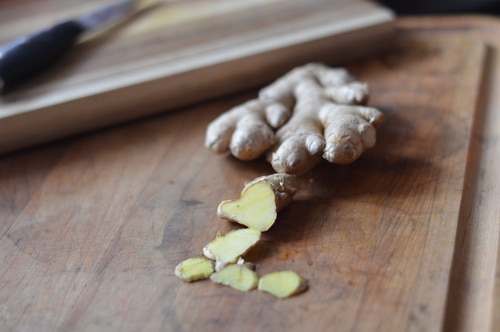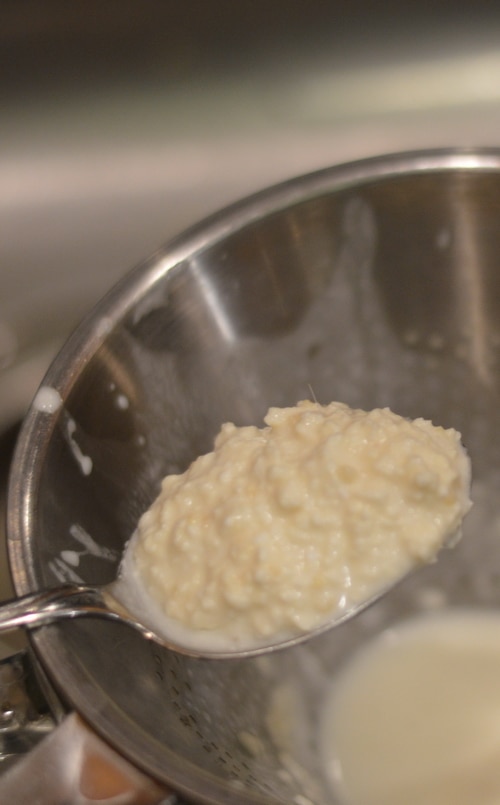Microbes and Weightloss
While we all tried not to eat too many Christmas cookies and desserts this holiday season, we’re now facing the New Year with the need to cut back. Many of us have weightloss goals that seem to elude even the most rigorous diet and exercise regime. We all think we know how to lose weight — eat less and exercise more, right? Fasting and training for a half marathon should make us lean and healthy. But it’s not as cut and dried as that. In fact, sometimes the thing we think will help us lose weight actually makes us gain weight. It can seem hopeless.
But I’ve got some good news. Scientists are finding that there are tiny helpers that we can enlist in our healthy living and weightloss goals. These helpers are so small, though, that most of us are overlooking them.
After reducing the sugar in your diet, the single most effective action you can do to improve your health, lose weight, reduce your risk of cancer, and diminish your risk of diabetes, metabolic diseases, fatty liver disease, and heart disease is to increase your beneficial gut microbes. Yes, those microscopic helpers that live in your intestine are your biggest ally in your weightloss goals.
Did you know that you have more microbe cells in your body than human cells? In fact, your microbial cells outnumber your human cells about three to one. While we are used to thinking of microbes as bad germs, there are also healthy microbes that we depend on for life. Your microbes help you digest your food, help you assimilate vitamins and minerals, protect you from disease, and regulate your appetite. They also regulate inflammation in your body, influence cognitive function, and affect your immunity.
Microbes influence sugar metabolism and blood glucose levels
Two Israeli scientists, Eran Siegel and Eran Elinav, found that microbes also influence insulin regulation and sugar metabolism. Their study, published in Cell in November 2015, demonstrates that the diversity of gut microbes within a person has a direct impact on blood glucose levels. High blood glucose levels inhibit weight loss, as well as contributing to cardiovascular disease, diabetes, fatty liver disease, obesity, and cancer. Siegel and Elinav were able to predict whether a person would have a blood sugar spike after ingesting certain foods based on an analysis of their gut microbes. The more diverse a person’s microbiome the better glucose metabolism they had.
Probiotic supplementation protects against weight gain.
Another recent study in the scientific journal Obesity demonstrated that probiotic supplementation can protect non-obese adults against weight gain in spite of consuming high caloric and high fat diets. That’s all well and good but what if you are already overweight?
Other studies demonstrate that probiotic supplementation can increase weight loss, lower body mass index, and lower blood pressure in obese adults. Both men and women were studied. Women lost even more weight than men when probiotic food was added to their diet. Favorable results were obtained with fermented milk, probiotic capsules, and probiotic cheese supplementation.
Increasing beneficial lacto-bacteria in your diet, whether it comes from milk, cheese, or other fermented foods had a beneficial effect on weight loss, blood glucose levels, and body mass index.
By the way, even though the bacteria are called “lacto,” they aren’t just found in dairy products. Lacto-bacillus and other lacto-bacteria are also found in sauerkraut, fermented vegetables, and long fermented sourdough bread. So if you have intolerance to milk, there are other fermented foods you can add to your diet to get the same benefits as eating yoghurt.
Does this mean that simply adding yoghurt to your diet will help you lose weight? Well, that depends. The Lactobacillus in yoghurt alone won’t particularly help with glucose metabolism or weight loss if you follow a typical factory food diet. There aren’t enough pre-biotics to feed the lacto-bacillus in a typical American diet.
However, there are ways to enlist the help of good microbes in your weight loss goals.
Studies show that it takes only a short time with a changed diet to dramatically improve your gut microbiome. By making small changes to your diet, in a short time you can improve the variety of beneficial bacteria in your gut, which will help in weightloss and other healthy living goals.
5 steps to a healthier, slimmer 2016
Take these 5 steps to improve the variety of your gut microbes, jumpstart your healthy lifestyle, and help you lose weight.
Increase the soluble fiber in your diet with herbs, fruits and vegetables
Soluble fiber acts as a prebiotic in your gut. It gives the good microbes something to feed on. This in turn increases the numbers of beneficial organisms. These are the ones that regulate appetite, reduce blood glucose levels, and improve immunity. Plus soluble fiber helps you feel full and satiated, putting the brakes on your appetite.
Soluble fiber is found in psyllium, the seeds of the plantain plant, as well as, chia seeds, flax seeds, and hemp seeds. It is also found in marshmallow root, sweet potatoes, almonds, beans and peas, and vegetables. Adding these to your diet will improve the gut environment that encourages beneficial microbes.
Bone broth also encourages healthy microbes that bring healing to your body.
Reduce your consumption of sugar, high fructose corn syrup, and artificial sweeteners
Consuming sugar and fructose increases blood glucose levels in everyone, whether you have a lot of beneficial microbes or not. Sugar consumption also disrupts the microbiome by increasing the acidity of the body, favouring the proliferation of Candida albicans, one of the bad microbes. This results in increased inflammation, as well as other health concerns including increasing the risk of all cancers.
Artificial sweeteners can harm gut microbes and induce glucose intolerance. Avoid artificial sweeteners if you want to lose weight.
Reduce consumption of grains, except grains that are fermented.
The high phytate content of grains, beans, seeds, and nuts inhibits mineral absorption and contributes to inflammation. Fermenting grains and soaking beans, seeds, and nuts, reduces their phytate content, and makes them safe to eat in moderation, when you are trying to lose weight. Fermented wholegrain bread also contributes beneficial fiber and microbes to your gut. The key here is moderation.
Increase beneficial lacto-bacteria in your diet, by consuming more kefir, yoghurt, probiotic cheese, kombucha, and fermented vegetables
By adding fermented foods to each of your meals you will very quickly improve your gut microbiome. By also limiting your calories and increasing your physical activity you will reap the benefits of controlled blood glucose levels, better blood pressure, and a reduction in metabolic syndrome.
It’s not enough to have kefir on the kitchen counter, kombucha in a jar, or Kosher dills in the fridge. You actually have to eat them. Make kefir cheese and spread it on a celery stick. Eat a pickle when you have the munchies in the middle of the afternoon. Eat sauerkraut as a side dish at dinner. A little fermented food throughout the day, every day, will gently change your gut microbiome to one that loves to help you lose weight and be healthy.
Once you’ve got your healthy gut microbes working for you, they will let you know if you forget them. You’ll get cravings for pickles or yoghurt. Kombucha will be more attractive to you than soda. The sugar cravings that plagued you since high school with stop. And as a bonus you’ll have more energy and think more clearly.
Eating more fermented food is the very best thing you can do for your health in 2016.
Avoid antibiotic use, except for extreme need
Antibiotics can disrupt the gut microbiome for up to a year, after antibiotic use. There are herbs that have similar properties to antibiotics but attack bad bacteria while enhancing good bacteria. If it isn’t a life or death situation, try a few herbal antibiotics, before you fill the prescription. Herbal antibiotics like bidens, woad, and ginger can be effective for mild infections. (Always consult your medical professional for serious illness.)
If you do find yourself in need of a prescription, eat as much fermented food as you can as soon as the antibiotic regime is completed.
I hope you’ll consider making 2016 the year you fully explore the health benefits of fermented food.
Recap
Improve your health and reduce your risk of:
- Metabolic disease and Obesity
- Diabetes
- High blood pressure
- Cancer
- Heart Disease
- Non-alcoholic fatty liver disease
- Alzheimer’s
- Obesity
Eat more:
- Kimchi, sauerkraut, pickles, and fermented vegetables
- Yoghurt
- Kefir
- Raw milk cheese
- Cultured butter
- Kombucha
- Ginger Bug
- Apple Cider Vinegar
Eat less:
- Sugar
- Artificial sweeteners
- High fructose corn syrup
- Unfermented grains, seeds, nuts
- Prescription antibiotics
- Factory made food
Your turn:
Are you ready to make 2016 the healthiest year you’ve had yet? Add some kefir, kombucha, or fermented vegetables to your daily menu. How will you get these health allies working for you this year?







I really like reading through a post that can make people think.
Also, many thanks for allowing for me to comment!